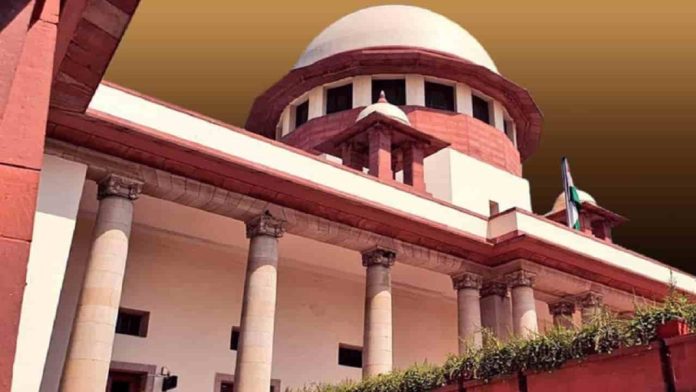The Supreme Court on Monday stayed the trial directed by a trial court against Tamil Nadu Rural Development Minister I Periyasamy in a case registered under the Prevention of Corruption (PC) Act.
The Bench of Justice Hrishikesh Roy and Justice Prashant Kumar Mishra noted that it was examining the merit of the impugned judgment, and thus, the trial, as ordered by the trial court, should not proceed.
The Apex Court passed the order while hearing a plea challenging the Madras High Court’s order, which set aside Periyasamy’s discharge.
Earlier on March 20, the Division Bench issued notice in the petition and allowed the Minister to seek deferment of the trial, given that the top court of the country was seized of the matter.
Appearing for Periyasamy, Senior Advocate Kapil Sibal pointed out that even though the Apex Court granted liberty to apply to the trial court for deferment of the trial, the same application was declined.
The trial court declined to defer the trial over the High Court order, which directed conclusion of the trial on or before July 31, 2024.
The Bench noted that it was examining the merit of the same judgment. In the circumstances, it was of the view that the trial ordered by the trial court should not proceed while the Apex Court was considering the challenge by the accused. Accordingly, the proceedings were stayed till the next date of hearing.
The matter pertained to allegations against Periyasamy that while serving as the Minister for Housing in the DMK cabinet between 2008 and 2009, he conspired with others to illegally obtain a High Income Group Plot in the Mogappair Eri Scheme of the Tamil Nadu Housing Board.
The land was allotted to C. Ganesan, personal security officer to then-Chief Minister M. Karunanidhi.
Though the trial court discharged the Minister, the single-judge Bench of Justice Anand Venkatesh of the High Court, through a suo moto revision, set aside the trial court order.
The High Court further ordered the trial to be transferred from the Special Court for cases under the Prevention of Corruption Act to the Special Court for the trial of cases against MPs and MLAs.
Periyasamy’s case was among several suo motu cases of corruption taken up by Justice Venkatesh.
Earlier, when the Apex Court issued notice on the petition, Senior Advocate Sibal argued only the Governor could have sanctioned a trial against Periyasamy for misusing his office as a Minister. However, in this instance, the Speaker issued the sanction.
Sibal cited R.S. Nayak vs A.R. Antulay, 1984 2 SCC 183, to bolster his argument that sanction could only be issued by the Governor, and sanction from the Speaker would be of no use.


